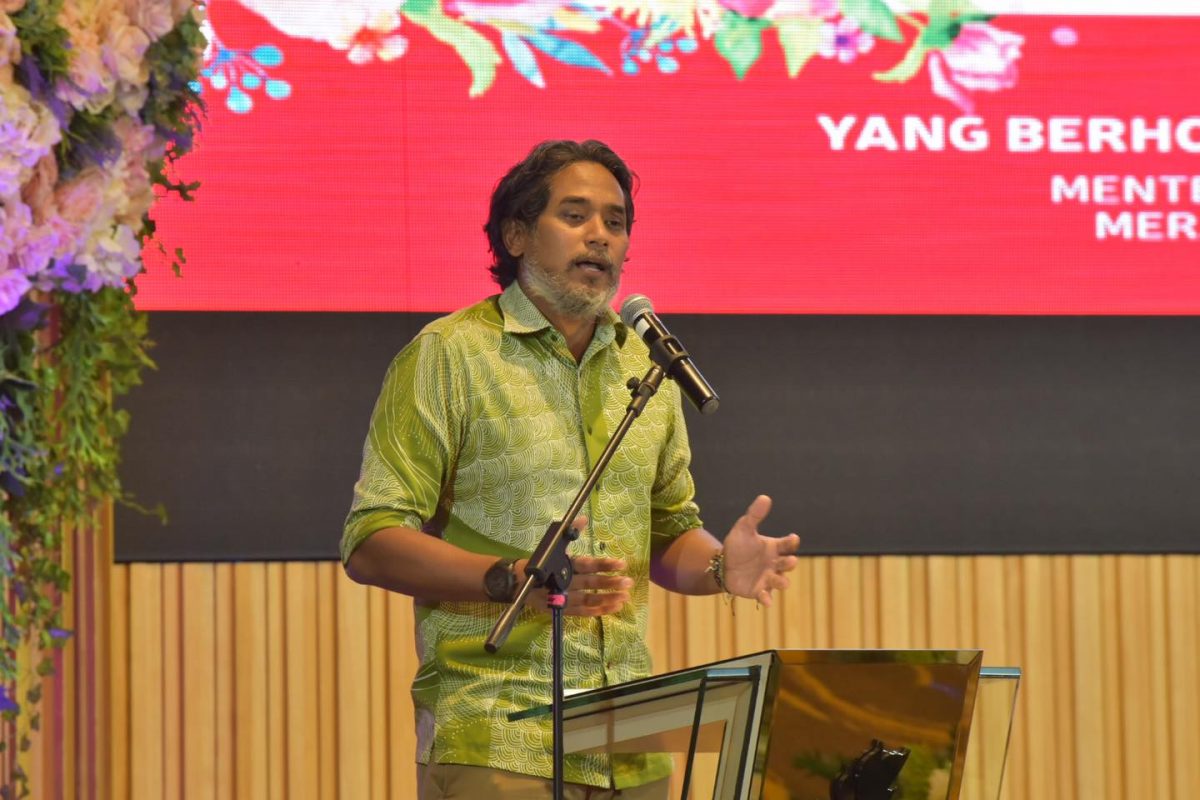The rapid rise of Covid-19 cases in Malaysia, hitting a record 3,027 new infections yesterday, after surpassing a daily high of 2,593 cases the previous day, makes our vaccination programme even more imperative.
There will be little room for mistakes, as the epidemic threatens to overwhelm Malaysia’s health care capacity. To reduce error as much as possible, the planning and implementation of the national Covid-19 vaccination campaign must be a joint effort between the government, scientists or professionals, and the private sector.
The government cannot repeat its previous mistakes in assuming a government-knows-all attitude throughout the Covid-19 public health response that have, arguably, led us to where we are today. The lack of widespread testing and contact tracers, as well as constant violations of Covid-19 SOPs by political leaders that encouraged ordinary citizens to similarly abandon SOPs, contributed to the spread of the virus.
These errors could have been prevented. Had the government worked with private medical practitioners to ramp up testing, or trained volunteers outside the public sector to help in contact tracing (you don’t need to be a doctor to interview a person and call up their contacts), positive Covid-19 cases could have been detected and isolated much sooner, therefore curbing virus transmission.
With our incoming mass Covid-19 vaccination programme, the biggest inoculation campaign in Malaysian history, we should prepare for another set of immense challenges. Despite the approval of Covid-19 vaccines, worldwide rollouts have been slow, including in the US, the UK, the European Union, France, and Germany. Delays in vaccine administration have been reportedly caused by poor organisation, lack of human resources, and vaccine hesitancy.
Although Malaysia was relatively slow in securing Covid-19 vaccines, but the government – thanks largely to Science, Technology and Innovation Minister Khairy Jamaluddin – managed to purchase enough doses to vaccinate at least 40 per cent of the population before the start of 2021.
As Health director-general Dr Noor Hisham Abdullah and Health Minister Dr Adham Baba will have their hands full managing the surging Covid-19 epidemic, Malaysia needs another person to run the country’s most complex vaccination campaign in history.
Khairy, in my opinion, is best positioned to lead the national Covid-19 vaccination programme, together with a committee of experts from both the public and private sectors. If the government aims to achieve 70 per cent vaccination coverage within one year from March, this means jabbing a whopping 1.9 million people a month – no mean feat, considering that fewer than 500,000 babies and children are immunised in an entire year under the National Immunisation Programme (NIP).
Given the welcome decision to obtain the Pfizer-BioNTech, AstraZeneca-Oxford University, and COVAX vaccines through direct procurement – an unprecedented break from conventional practice of using middlemen tender agents in pharmaceutical procurement – Khairy may well think out of the box in the Covid-19 vaccine rollout too.
Scaling up the mass vaccination campaign will require significant participation from private general practitioners (GPs) and community pharmacists, as public health care workers dealing with child vaccination have to contend with two new shots this year – the pneumococcal and hexavalent vaccines.
The government should not hesitate to pay private health professionals for their services in the Covid-19 vaccination programme – these costs can be covered by the government allocations set aside for Covid-19 vaccines. Volunteers from the Red Crescent should also be roped in to aid the Covid-19 inoculation campaign.
The chief of Malaysia’s national Covid-19 vaccination programme will need to decentralise the federal effort and recruit not just state administrators, but also community leaders to help design and implement vaccine mobilisation plans. Engaging communities is crucial to get their buy-in for vaccination, since misinformation runs rampant on social media.
Malaysia’s Covid-19 vaccine czar must also publish data regularly, perhaps on a weekly basis, if not daily, on the number of people initiating vaccination (first dose received) and doses distributed, with the data disaggregated according to individual facilities and states. The US’ Centers for Disease Control and Prevention (CDC) online dashboard tracks these by state, including rates per 100,000 people.
If Khairy were to be appointed Covid-19 vaccine czar, the Ministry of Health (MOH) must be open to sharing data with the Ministry of Science, Technology and Innovation (MOSTI) on vaccination rates and any wasted doses in its facilities. Data sharing between government departments and agencies is conventionally rare, an attitude of secrecy that did not change even during an unprecedented global pandemic.
Publishing data on performance targets and shots-to-the-arm according to district or state will enable Malaysia to quickly identify problems in slow rollout, whether it’s the lack of health care professionals to administer vaccines, slow delivery, or vaccine hesitancy. If it’s the latter, Facebook advertisements combating vaccine misinformation can be targeted at problematic districts.
The Covid-19 vaccine czar also needs to be transparent on logistical issues in the distribution of doses to vaccination sites, as we should foresee challenges unique to localities, such as Sabah and Sarawak, and the interiors of the peninsula. The Parliamentary Select Committee on Health, Science and Innovation can play an active role in monitoring the Covid-19 vaccine rollout.
Getting Covid-19 vaccines to the Kuala Lumpur International Airport is just the first hurdle in our mass inoculation campaign. Khairy must see the entire vaccination programme through to jab as many arms as possible.
I am optimistic that Khairy will be able to rally a true “all-of-society” effort across states and communities in vaccinating and protecting the people of Malaysia from Covid-19.

Boo Su-Lyn is CodeBlue editor-in-chief. She is a libertarian, or classical liberal, who believes in minimal state intervention in the economy and socio-political issues.








